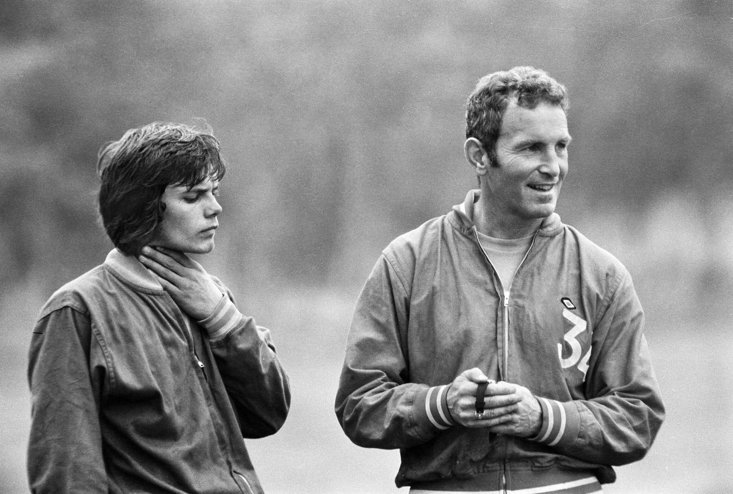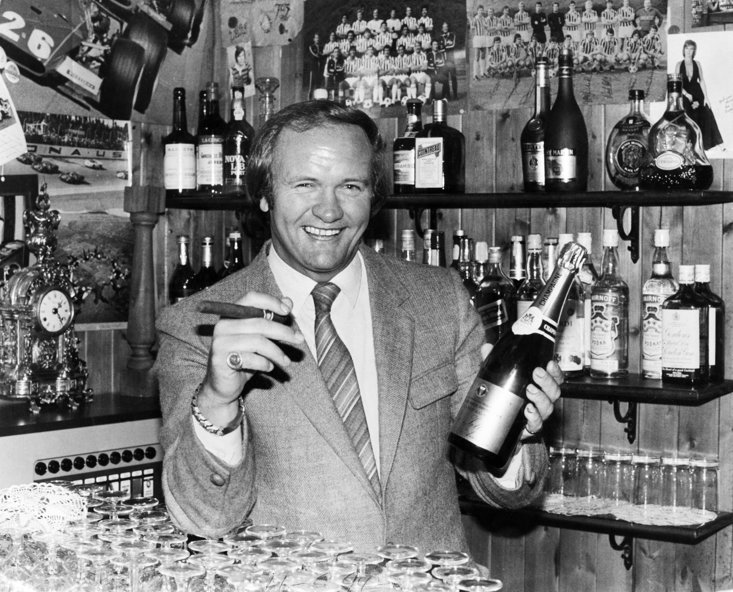Picture this: Manchester United had lost a history-making manager and countless star players over a few short years, bouncing unsuccessfully from vision to vision, leaving people to wonder exactly what direction the Red Devils were taking. Sounds like post-2013, right? Ole Gunnar Solskjaer might be the latest United manager trying to emulate the glories of Sir Alex Ferguson but the club have been in this position before.
The Reds suffered some traumatic times after the Sir Matt Busby era, including the exit of the ‘Holy Trinity’ of Bobby Charlton, Denis Law and George Best, as well as relegation in 1974, but it took the Dave Sexton era for the club to be accused of losing its identity in a way similar to more modern times. But Ron Atkinson would get United pointed in the right direction again.
Sexton’s era in charge - from July 1977 to May 1981 - is largely considered as one where the Old Trafford club regressed significantly. Exciting players were sold, there were four trophy-free years and, towards the end, supporters voted with their feet as crowds plummeted.
To outsiders, football seems an awfully easy task with simple fixes. Sexton had, ostensibly, a more simple task than most football managers, as he had walked into that rarest of scenarios; a team on the up with a young core and a growing reputation.
Tommy Docherty’s thrilling team had just defeated Liverpool - soon to become European champions - in the FA Cup final. Their average age was just over 23, almost identical to that of the ‘Fledglings’ side which overcame the same opposition in the 1996 final at the beginning of their journey of domestic domination.
Sexton, manager of the England Under-21 side with an impressive club CV, should have had the capability to improve an impressionable side and elevate them to the next level. But the studious Londoner was as stubborn as he was amenable. A clash with star player Gordon Hill, over the winger’s defensive duties, meant one would have to leave Old Trafford in a power struggle. The manager won this battle in April 1978 but it was not a popular move to supporters, who painted ‘Hill in, Sexton Out’ on a wall near the stadium.
To compound matters, Hill was the top scorer. Sexton needed his decision to be justified but Hill’s replacement, the hardworking Mickey Thomas, scored just once in the league the following season. United finished ninth in 1979 and lost the FA Cup final in difficult circumstances.
Although they finished second to Liverpool the year after, the title was a one-horse race. Popular players - and Docherty apologists - Brian Greenhoff and Stuart Pearson had been allowed to leave.

Sexton had attempted to build a cultured team with Ray Wilkins at the heart of midfield, while adding some of the height and physicality the Docherty team had been accused of lacking. He desperately needed results to go his way but by the turn of the year in the 80/81 season United were in seventh place, had drawn 15 of their 25 games and had failed to score in nine of them.
A run of five scoreless games in February and March sealed Sexton’s fate. Players were being instructed to run through specific drills and not trust their instinct. The hesitation on the field led to groans and boos from supporters and falling attendances. Sexton professed to being a champion of attacking football but year-on-year at Old Trafford the excitement factor had declined. The club were now at their lowest point since their return to the top flight and all of the momentum and fun of the Docherty era had been taken away.
Sexton was dismissed and succeeded by Ron Atkinson, who felt his task was to restore United into a club of grand European stature.
The ex-West Brom manager was similar in managerial style to Docherty; he led in an evangelist manner rather than as an instructor. But things did not transform overnight, as the players Sexton had brought in were less receptive to this new style. Most of the Docherty side who remained were not only four years older, but either close to the end of their careers or in need of a fresh start.
A new man with new ideas and a contrasting personality was taking over a squad instructed to play in a certain way. This was the second such jarring shift in four years so Atkinson’s best hope in the short term, if he wanted to get off to a good start, was to make the most of what he had.
He signed Bryan Robson and Remi Moses to add more steel into the midfield and Frank Stapleton came in to replace Joe Jordan. Wilkins gave the new manager a headache by proving to be better than Atkinson had given credit for, and while Arnold Muhren came in from Ipswich Town, Atkinson initially failed to add his teammate Alan Brazil.
That transfer frustration, and the retirement of Steve Coppell through injury, meant a change in formation, with United playing Robson at the head of a diamond. Until Robson himself succumbed to a shoulder injury that would dog him for some time, it seemed as if this 4-3-1-2 shape would be a good bet moving forward. It was the best United had played since the Docherty era, and resulted in famous wins against Arsenal and Barcelona.

Without the brilliance of Robson spearheading that midfield, the lack of width became a problem. Atkinson brought in Gordon Strachan and Jesper Olsen and United - with proper wingers on both sides for the first time since Hill was sold - had a flair and a swagger that was reminiscent of those Docherty, and Busby, days. John Course, reporter for the Guardian, asked at one point in the 84/85 campaign: “Strachan, Stapleton, [Mark] Hughes, Olsen — have United ever had a better quartet?”
But it wasn’t just the introduction of width that had observers finally accepting this version of Atkinson’s United as one that befitted the traditional lineage. Hughes was a youth player and a result of the unappreciated behind-the-scenes work by Sexton, as were Norman Whiteside and Mick Duxbury to name just two.
When the pressure became greater for Atkinson to win a title, it was not the youth team he plundered, but the transfer market. Mark Higgins, Garth Crooks, Peter Davenport, Peter Barnes, John Sivebaek, Terry Gibson and Colin Gibson all came in for short-term careers at Old Trafford, but Atkinson’s gambles disillusioned some of the senior players who lost their places in the team as a result.
Injuries in the last 12 months of Atkinson’s reign helped to undermine his efforts but he had done well with a fair crack of the whip. He appeared to have stumbled upon the right blend of ingredients to create a team which is still regarded as a great side in the club’s history. Trusting players to play their natural game, encouraging them to attack with width, complementing senior stars with homegrown talent; this was the magic formula for Atkinson and indeed United.
In 2019, Atkinson confided in me that he would have hired Sexton as his assistant if he didn’t think the offer would have insulted his predecessor. Sexton in charge of the development of the kids, with the media-savvy Big Ron as the boss? That could have been a recipe for greater success. Regardless, Atkinson at least did enough to demonstrate what that recipe was. That his time was followed by the most successful reign of any managerial reign in the history of English football is unfortunate on a personal level.
Chairman Martin Edwards told me: “I don’t look on Ron’s tenure as a failure at all. It was a stepping stone to great things in the 1990s.”
Atkinson would disagree. Away from the reputation of playing a cavalier style, he wanted first and foremost to win. This was an admirable and indeed necessary trait for the top man at Old Trafford to have.
Still, at its core, football is a sport to hopefully serve as entertainment to supporters. In that regard, Atkinson was a resounding success as not only a football manager, but a Manchester United manager. The search for his modern-day equal, seemingly, goes on.